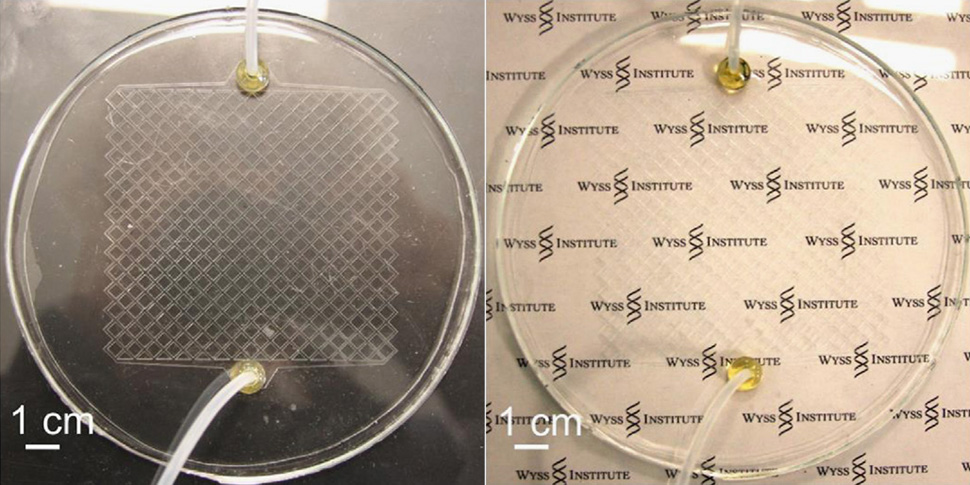Windows, our source of life-giving sunlight indoors, are a menace to your electrical bill. In the summer, windows bleed cold and in the winter they ooze heat. To save energy, researchers want to give window panes a circulatory system that could pump in cool, liquid relief when they get too hot.
In research published in Solar Energy Materials and Solar Cells, researchers from Harvard describe an artificial vascular system, which could help make windows more energy-efficient by controlling their temperature with water.
The technology consists of a thin, clear sheet of silicone rubber which is stuck over the surface of a pane of glass, as in the image below. The silicone is moulded with 1-2mm channels, which can be pumped with water when a pane gets too hot. The basic principle is illustrated in the thermal GIF above. Water comes in one end, and cools the glass down as it flows towards the other. And as you can see, the silicon webbing is essentially invisible when its laid over the glass. So you get the sunlight without the heat.

The system’s efficacy varies depending on how fast you pump water through it, as you can see in the thermal video below. The cooling happens much faster at 10mL/min than at .2 mL/Min
But the key is that even at a relatively low flow rate, the technology could make an impact at the scale of a regular person’s house. From the release:
Pumping just half a soda can’s worth of water through the window’s circulatory system would cool a full-size window pane by a full 8 C (14 F), [the researchers] calculated. The energy needed to pump water would be far less than the heat energy the water absorbed. This suggested that installing the cooled windows throughout a building would generate a big net win.
Beyond using the technology to control the temperature of windows, the researchers also suggest that it could be used to keep photovoltaic solar panels from burning up since they lose efficiency when they get too hot. Which is, you know, pretty cool. [Science Direct via Harvard]
Gif by Nick Stango
